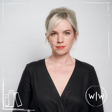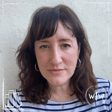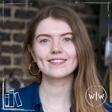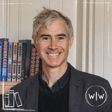
#108 - Mary Adkins
Dramatic fiction author, writing coach and recovered lawyer Mary Adkins is on the show this week talking about her writing journey, working with other authors and bringing her old lawyering skills into her stories.
Signing up to the Patreon will give you access to the Discord server, where you'll be able to interact directly with Jamie as well as many of the previous agents, authors and editors who have been on the show. You'll also be able to see who the upcoming guests are and put forward questions for Jamie to ask them.
Get a whole month with WriteMentor's Hub for free using the coupon code 'Write&Wrong'.
The Chosen Ones and Other Tropes
Jamie, Melissa and Noami talk about the best and the worst writing tropes!
Click here to find all of our guests' books as well as the desert island library over at bookshop.org.
Click on this referral link to get 30% off your first three months with Zencastr.



















